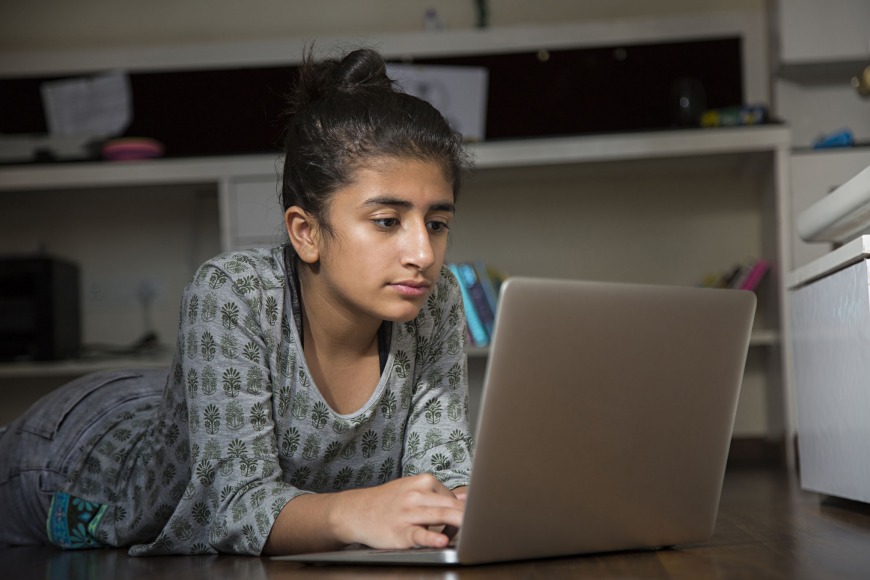10 Ways to Help Protect Your Child’s Online Reputation
Internet Matters gives tips on how parents can help stop kids from sharing comments and photos they might regret later.
23 April 2019

The internet keeps a record of everything shared online, from comments and photos, to what we buy. This is called our online reputation.
And while it can be fun to share online, it can also be hugely damaging for years to come if the wrong thing is posted. Internet Matters, an organisation that helps parents keep their children safe online, warns it’s vital for children and young people to understand this.
“Parents play a huge role when it comes to helping children understand how to manage their online reputation and how it may impact them in later life,” says Carolyn Bunting, CEO of Internet Matters. “For example, it may be seen by a potential employer or their school. This is really important for their future as research has shown that 35% of employers use social media to screen potential employees.”
2. Encourage them to be positive online
Actions online can have real world consequences – share real stories to help them understand the power of being positive online and warn them about fake news which can lead us to believe things that aren’t true.
3. Make sure they know how to report abuse
Spend time together getting familiar with the reporting and blocking settings available on the platforms they use to screen out any abuse that breaks a platform’s community guidelines.
5. Encourage them to search their name
Make sure children are aware of the information future employers and teachers may see, and agree to remove anything that’s unpleasant or incorrect.
6. Check their online reputation yourself
You can research your child’s online reputation by searching their whole name and other identifying information, such as a town or nickname, using a variety of search engines and Google image search. If your child is a member of a social networking site, consider joining it yourself and ask to be your child’s online connection, or get another trusted adult to do this.
7. Make them aware they can recover from online mistakes
Let them know that if they make a mistake like sexting or posting something they shouldn’t, there’s always a way to deal with it, and give them support to make smarter choices in the future.
8. Highlight the importance of choosing respect
Talk to them about respecting other people’s privacy and viewpoints even if they don’t agree with them.

9. Be the example they can follow
Let your child see how you interact online to learn how to be kind and make safer choices.
10. Be aware of the available resources
Internet Matters has produced detailed advice for parents about proactively protecting your child’s reputation online,as well as links to bespoke safety advice on the most popular social media platforms that children use.
In addition, Plusnet has joined forces with Internet Matters to create Plays on the Internet –a series of plays written by TV presenter and children’s book author Konnie Huq to help educate families on the importance of keeping children safe online. The plays will launch at the end of April with a one-off performance. The scripts will also be available to download via the Plusnet website from April 30.

























.png?itok=SvZPqMHH)




.png?itok=uB2ieOR7)












